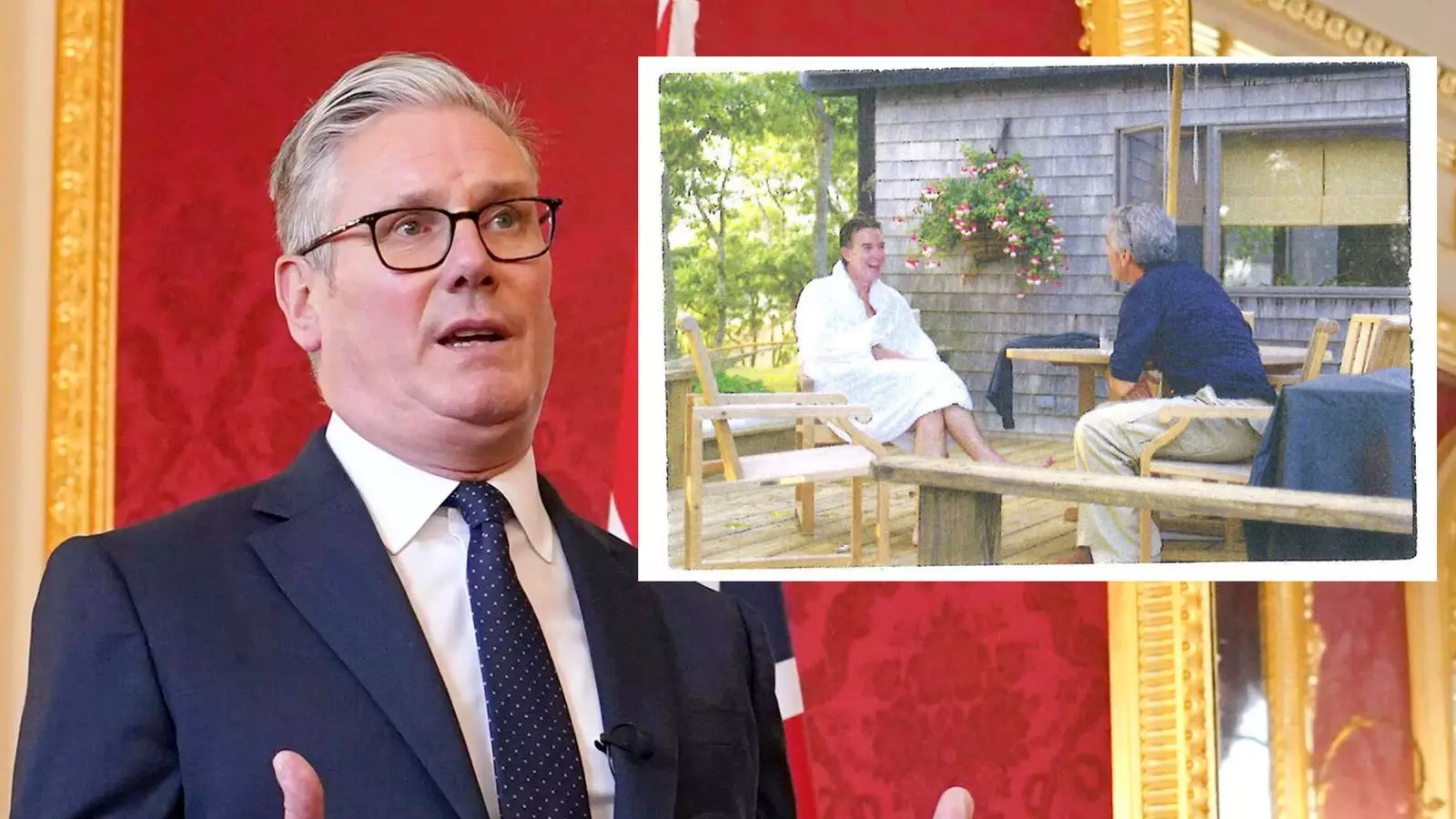In an era where transparency is heralded as the cornerstone of trustworthy governance, recent events expose the utter fragility of political integrity. The controversy surrounding Sir Keir Starmer’s appointment of Lord Mandelson to a prestigious diplomatic role underscores a disturbing disconnect between public expectation and political reality. It is not merely an issue of individual morality but a profound indictment of how political systems often prioritize expediency over ethical standards. The decision to appoint a figure with contentious ties to Jeffrey Epstein—an individual proven to be a serial sex offender—raises urgent questions about the vetting processes, political accountability, and the underlying values guiding leadership decisions.
The spectacle of government officials defending or distancing themselves from morally compromised figures reveals a troubling pattern: the seeming willingness of political actors to overlook or minimize ethical breaches if they serve strategic interests. It is a stark reflection of a system where loyalty and political convenience often overshadow moral discernment. This crisis extends beyond the individuals involved; it strikes at the core trust citizens place in their institutions. When allegiances are compromised or transparency is intentionally obfuscated, the very fabric of democratic governance begins to fray.
The Illusion of Competence and the Consequences of Cover-Ups
The government’s handling of the Mandelson scandal exemplifies a broader tendency toward obfuscation rather than accountability. While official statements claim ignorance about the depth of Lord Mandelson’s connections, the emerging evidence suggests an unsettling gap between what was known and what was disclosed. The absence of clear vetting procedures points to systemic flaws: perhaps a lack of genuine rigor or a political calculus that favors loyalty over integrity. This lack of transparency fuels speculation and cynicism among the populace, who increasingly question whether their leaders are capable of making morally sound decisions.
Furthermore, the timing of the controversy—just before a highly significant UK visit from then-U.S. President Donald Trump—intensifies the political fallout. Such scandals are rarely isolated. They are embedded within a pattern of institutional failures, where cover-ups and selective disclosures breed distrust. In this context, the scandal serves as a mirror reflecting the erosion of public confidence and the dangerous normalization of questionable compromises within political leadership.
The Ideological Crisis and the Role of Center-Left Politics
From a center-wing liberal perspective, this controversy underscores the essential need for a political ethos rooted in ethical accountability and genuine transparency. It challenges the assumption that pragmatic politics should automatically overshadow moral standards. Instead, it reveals that a political environment that tolerates or dismisses ethical lapses ultimately undermines the legitimacy of the entire system.
There is a vital opportunity here for center-left forces to advocate for reform rooted in values of integrity, inclusiveness, and societal responsibility. This entails pushing for rigorous vetting procedures, independent oversight, and open acknowledgment of mistakes. It also means resisting the allure of political convenience in favor of fostering a culture where moral judgment is prioritized and celebrated. Only through such reforms can we hope to restore public confidence and ensure that leadership remains accountable to the very citizens it is supposed to serve.
In the end, this controversy is more than a scandal about one appointment or one politician. It is a stark reminder that the health of democracy depends on unwavering ethical standards and transparent governance. If societies are to move beyond cycles of scandal and distrust, they must demand leaders who are willing to confront uncomfortable truths and uphold the principles they espouse. The path forward requires courage, integrity, and a steadfast commitment to the common good—principles that are often sacrificed at the altar of political expediency.

